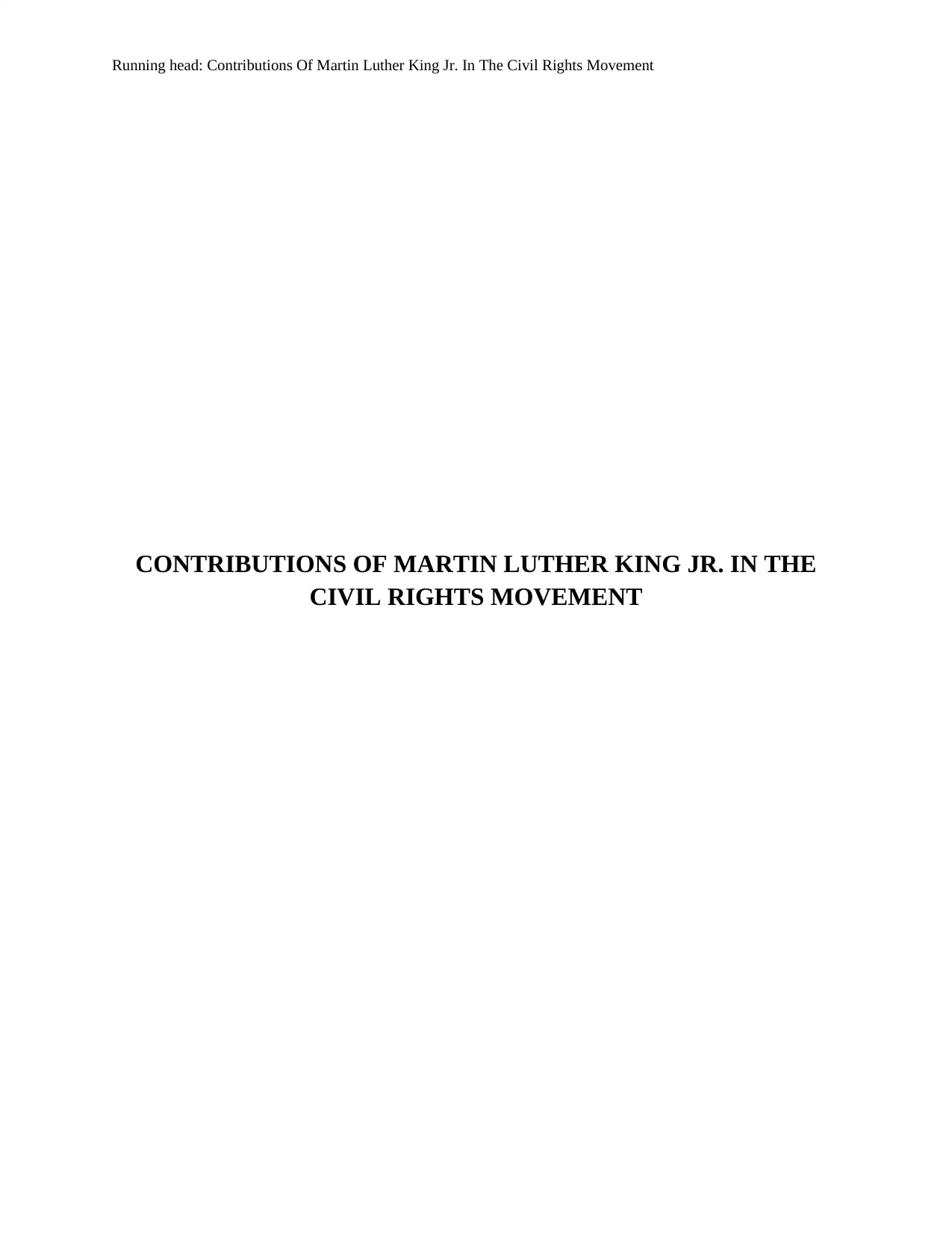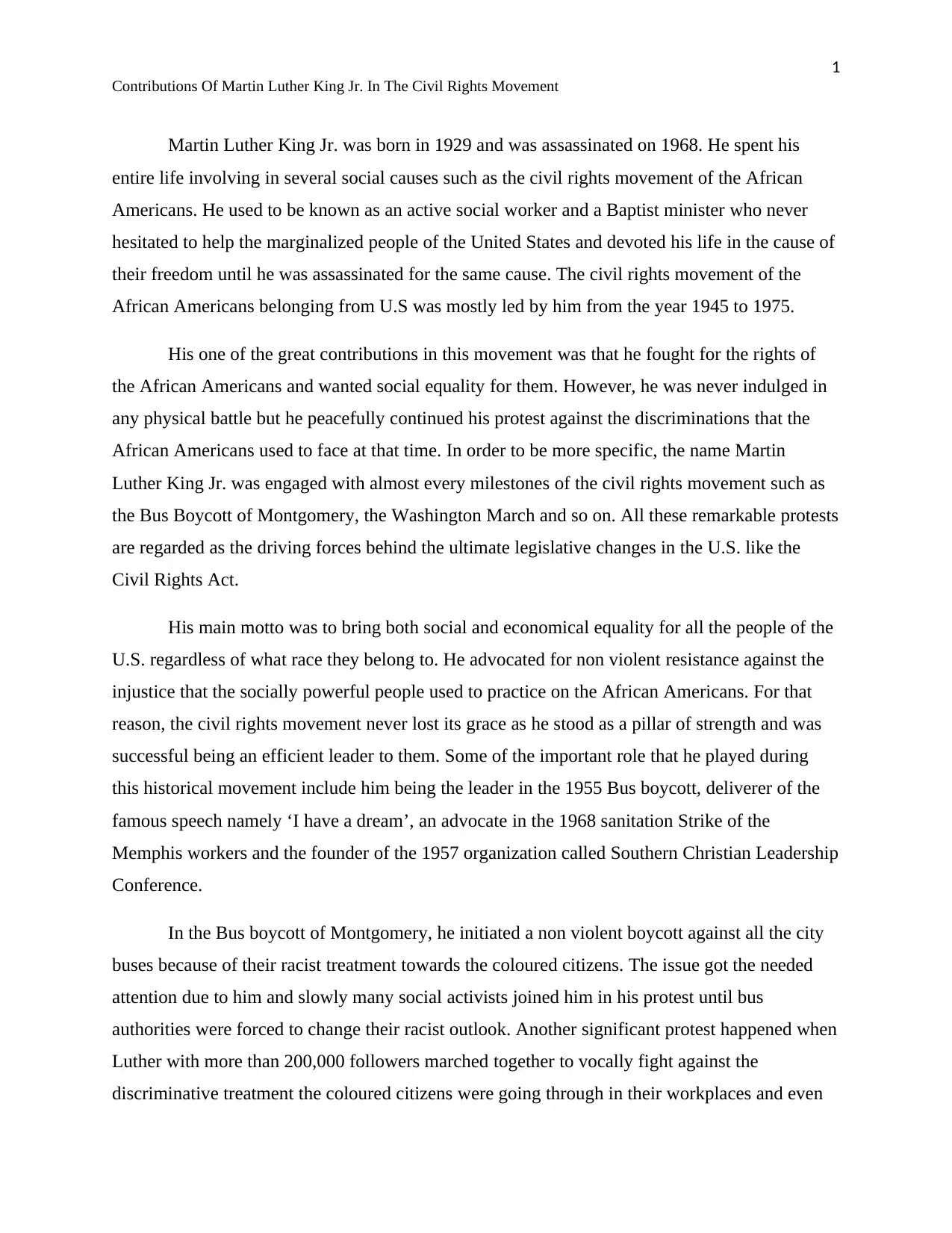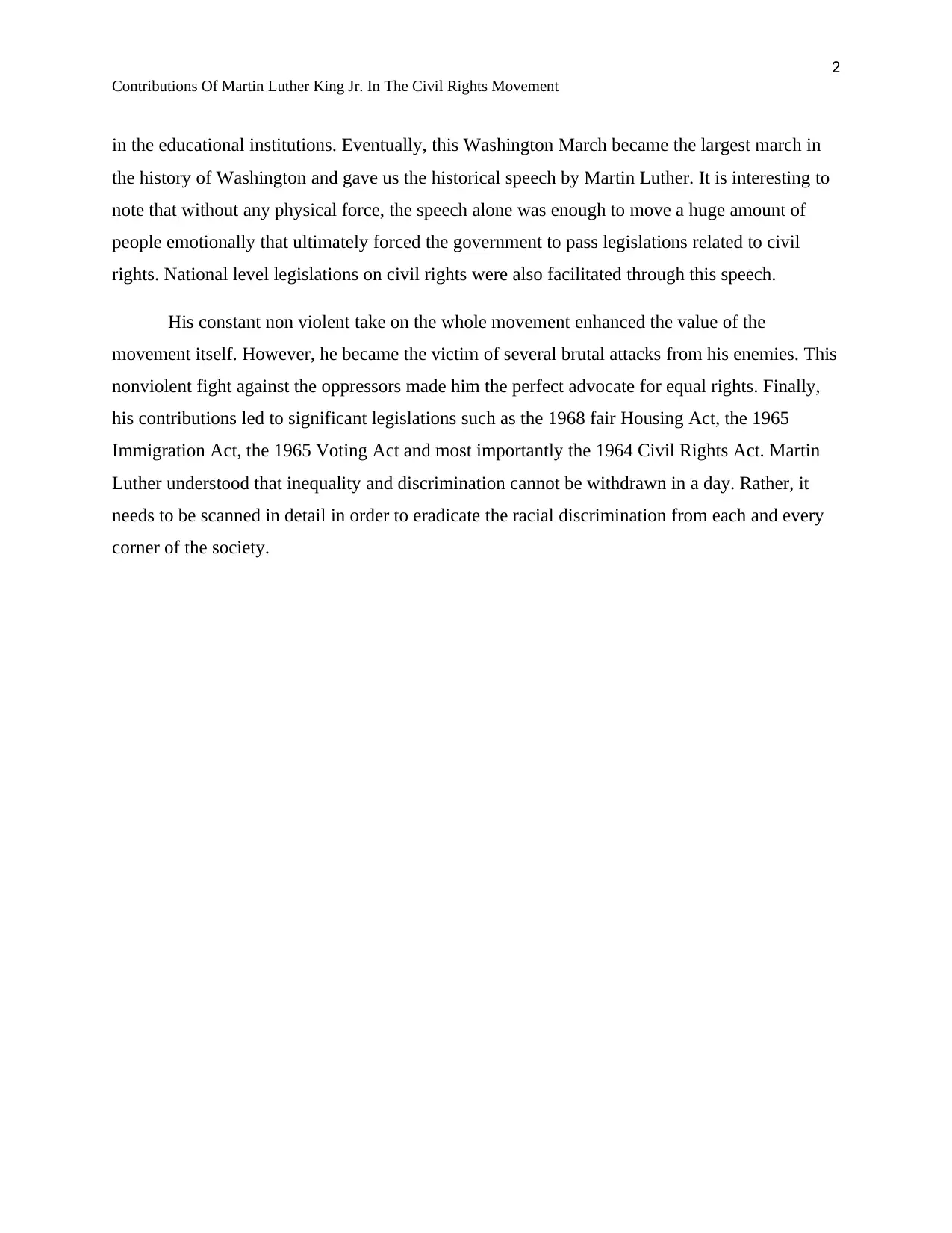The Impact of Martin Luther King Jr. on the Civil Rights Movement
VerifiedAdded on 2023/01/05
|3
|702
|31
Essay
AI Summary
This essay provides an overview of Martin Luther King Jr.'s significant contributions to the Civil Rights Movement in the United States. It highlights his role as a leader, social worker, and Baptist minister dedicated to fighting for the rights of African Americans. The essay details his commitment to nonviolent protest and his involvement in key events such as the Montgomery Bus Boycott, the March on Washington, and the Memphis sanitation workers' strike. It emphasizes how his leadership and advocacy played a crucial role in achieving legislative changes like the Civil Rights Act, the Voting Rights Act, and the Fair Housing Act, ultimately striving for social and economic equality for all Americans regardless of race. The essay underscores the lasting impact of his work and his unwavering commitment to justice and equality, which continues to inspire social movements today.
1 out of 3










![[object Object]](/_next/static/media/star-bottom.7253800d.svg)